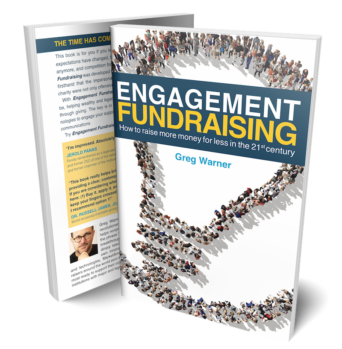We use cookies to ensure that we give you the best experience on our website. By continuing to use this site, you agree to our use of cookies in accordance with our Privacy Policy.
 Login
Login
Your Role
Challenges You Face
results
Learn
Resources
Company
9 Powerful Insights into Your Major Donors from Donor Survey Data


When gift officers try to reach out to supporters recently added to their caseloads, it’s usually tougher to get them to respond. This is true even for people who passionately support your mission. The good news is, as you’re about to see, donor survey data provides both the means for outreach and the substance for future engagement that will motivate more and bigger gifts.
But let’s answer the initial question first:
Why don’t some of your most ardent supporters respond to outreach from gift officers?
First, there are the obvious reasons. People are busy, overwhelmed, bombarded with social media and email, and you don’t yet rise to the top of their priority list.
Second and more importantly, they just don’t know the gift officer personally. They know your organization, and happily give to it at their current levels. But they don’t know you as an individual. To them, you’re just some person reaching out from the organization. You don’t matter to them at this point, so they don’t always respond at first.
Again, this is especially true early in the qualification and cultivation processes of major gift fundraising.
So what can you do to get more responses?
You can use donor surveys.
Why Donor Surveys Work
Donor surveys work for several reasons, most of which relate to the empowerment of the donor and the opportunity to advance their personal hero story. Here are three quick reasons:
1. Surveys appeal to people who already care about your mission
Donors and supporters want to see your organization succeed in advancing your mission and making a positive impact in the world. They care deeply about that, and a properly positioned survey will engage them for that reason.
2. Surveys give value and respect to donors
Even though surveys take some time to fill out, donors feel respected and valued because you are asking for their opinion about something related to the work of your organization. Their opinions matter, and surveys validate that.
3. Surveys let donors play a role
A donor survey asks supporters to get involved on an advisory level. People appreciate being included in decision-making and strategic planning.
So, surveys are a great way to reach out to supporters.
But what’s even greater about donor surveys is the data they provide you. With high quality, personalized donor survey data, a gift officer can begin reaching out to each prospect in a much more customized manner.
You can connect with supporters more effectively, understand their motivations, and appeal to their interests and preferences. With the right donor survey questions, the insights you gain will advance and deepen your relationship, get them to finally start responding to your calls and emails, and eventually lead to much bigger and transformative gifts.
What insights can donor surveys provide? Let’s look at nine of them.
Donor Survey Data Insights into Major Donors
1. Which Donors’ History Connects to Your Cause
Not every donor has a personal connection to your charity. Some give for other reasons. But for the ones who do have a personal connection – you want to know about it. That gives you a unique inroad into their primal motivations for wanting to be involved with your work. Donor surveys can easily discover which supporters have a history with you.
2. Which Donors Believe Their Values Align with Yours
You might presume that all donors feel this way. Why else would they give? But the reality is that donors give for dozens of different reasons, and values alignment is just one of them.
For those donors whose values align very strongly with your organization, you’ll be able to appeal to them from that perspective, and this will very quickly get their attention and motivate a deeper and more personalized connection. When they feel heard by you, and feel a kindred spirit, you’ll be able to leverage that into bigger gifts down the road.
3. The Donors Who Were Inspired by Someone Else About Your Mission
Connecting with a donor depends so heavily on why the donor cares about your mission. For some donors, it was another person who inspired them to care. For someone like this, you want to know who that person is, their relationship with the donor, and how that person inspired the supporter to get involved.
Donor survey data can reveal this and other motivations for how and why each supporter engages with your work.
4. Specific Projects or Areas of Impact that Attract Them
Most nonprofits administer multiple projects and initiatives as part of their larger mission. But not every donor is drawn to all of them. Many donors are most engaged by one or a handful of the causes you are fighting for.
Which ones? Donor survey data makes it easy to find out what aspects of your work resonate most with each donor. Knowing that in advance gives you a great opportunity when you eventually get a meeting with them.
You will know which stories to share, which beneficiaries to feature, and which data to present. You will discuss the information you know they care about most. And you’ll know what that is because the donor survey uncovered it before you met with the donor.
5. Methods of Giving Assets Instead of Cash
Gifts of assets tend to bring in far higher dollar amounts than gifts of cash. Donor survey data can reveal which donors fall into both camps.
You’re looking for the supporters who prefer or are open to giving gifts of assets. Then, you want to know which types of assets. A donor might prefer to give from an IRA, stock options, crypto, property, life insurance, donor advised funds, and various other tools of giving.
A donor survey can reveal how each supporter you meet with prefers to give, as well as the methods they are open to discussing. Empowered with this data, you’ll know when to ask about these things and when not to.
Basically, your goal is – as often as possible – to ask questions for which you already know the answers. Donor survey data provides the answers for each donor. When you connect with them on that level, you increase trust, deepen the relationship, and inspire a desire to give a larger gift.
6. How Soon the Donor Envisions Giving
Where is each donor in the consideration process? Are they ready to give now? Perhaps soon, as in a couple months from now? Or are they not going to be ready for a year or two? Every person is different, and wealth isn’t the only factor. Timing is important too.
Donor survey data reveals how each donor feels with regard to the timing of their gift. With these insights, you won’t annoy or discourage a donor by asking if they want to give before they are ready. For example, maybe the donor wants to give a big gift, but is waiting for a property to be prepped and sold. This can take several months or longer.
With gifts of assets, delays like this happen all the time. You must be willing to wait for the right timing to win the biggest gifts. Donor survey data helps you avoid finding out the timing during the meeting, which often leads to awkward moments.
7. Interest in Legacy Giving
Interest doesn’t mean commitment. But if someone signals in a donor survey an openness toward legacy giving, you now know it’s safe to bring that up. Knowing that in advance greatly reduces the anxiety about raising the topic of legacy giving, which can be tricky because it involves death.
As a sidenote, the 4S Method allows you to raise the possibility of legacy giving while avoiding the topic of death.
8. Foundations and DAFs that Conflict with Your Value Proposition
Family foundations are actually your greatest competition when it comes to major gifts. Foundations take a sizable chunk of transformative gifts that could have gone to nonprofits.
A donor survey can uncover which of your donors own a family foundation or are connected with one. Same with DAFs that might be created for a particular set of goals. If those goals don’t align with what you have to offer your major giving prospects, these donors will be harder to persuade. Knowing that in advance helps you understand how to approach them.
9. Where You Stand in the Pecking Order
Many donors support more than one organization, especially with recurring gifts. Donor survey data might surprise you when you find out how many nonprofits your donors are involved with.
Suppose one of your donors is giving to three different charities. Will they give a major gift to all of them, or just one or two of them? It depends on the donor, their wealth, the kind of impact they want to have, their connection to each organization, and so much more.
Survey data can reveal all of this, including where your organization ranks in the mind of the donor compared to the others they support. If you go into a meeting knowing you’re number one in their heart, you’ll approach that meeting very differently compared to another donor who ranks you somewhere in the middle.
How to Automate Donor Surveys – All the Benefits without the Exhaustion
As you went through this article, you probably found yourself agreeing that donor survey data can be incredibly powerful and useful in the donor cultivation process.
You probably also started thinking about the logistics. Sending surveys to individual donors at the right timing for each. Processing and organizing the data. Keeping track of what each person has said, and figuring out how best to use that information in your communications with them.
It’s enough to make most people give up on surveys before starting, and understandably so.
That’s why MarketSmart makes automated donor surveys a core function of our software. We know how hard it is to effectively administer a donor survey program. But it’s so incredibly valuable – you just can’t do your job as well without high quality donor survey data.
Our software automates donor surveys, personalized to each supporter, sent at the right time, and it evaluates their responses and scores them. The result is, you know which donors are ready to be engaged, and which ones can be left alone with the automated communications. You’ll have a running list of what each donor has said with regard to many of the insights you just read about.
When you finally reach out and start meeting with a donor, you’ll have all this information at your fingertips, but you didn’t have to work for any of it.
Want to see more?
Schedule a free demo of our software and see how it works
Related Posts:
- Top 10 Ways You Can Benefit from Conducting a Donor Survey
- Don’t survey your donors unless you have cultivation ready to go
- The Ultimate How-to-Guide for Conducting Nonprofit Donor Surveys
- 12 Fundraising Questions Major and Planned Gift Officers Should Be Asking
LIKE THIS BLOG POST? LEAVE YOUR COMMENTS BELOW AND/OR SHARE IT WITH YOUR PEERS!
Get smarter with the SmartIdeas blog
Subscribe to our blog today and get actionable fundraising ideas delivered straight to your inbox!
